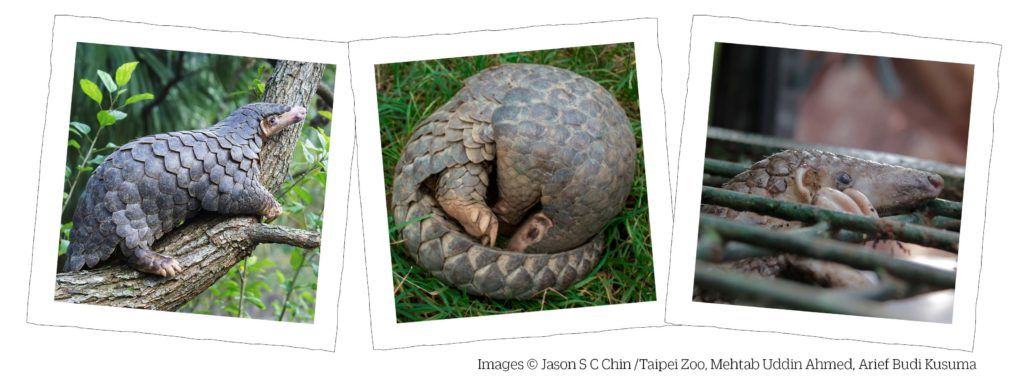Pangolin appeal
Make your donationProtect our pangolins
Wildlife trafficking has changed the world as we know it. We are yet to fully establish the origins of coronavirus, but it is likely that the wildlife trade played a pivotal role in the transmission from animals to humans. The trade puts our precious wildlife at risk of extinction and threatens human health on a global scale. Often illegal and unsustainable, it’s difficult to monitor as business is driven underground, out of sight of authorities.
Wildlife trade is responsible for the near elimination of some of our most iconic large mammals. African elephants, targeted for their tusks, plummeted by 90% in the last century. Black rhinos crashed by 96% between 1972-1996, killed for their horns.
However, the most trafficked mammal in the world is neither of these, but the shy, scaly pangolin. Captured from the wild and sold to the highest bidder, the animals are likely to be eaten, or end up in traditional medicines.
It’s estimated that we’ve lost a million pangolins over the past decade.
Making the trade illegal and removing pangolins from the Traditional Chinese Medicine handbook are positive steps, but experience tells us that the demand will sadly remain high. To tackle the root cause of this trade, we must understand why people want to consume pangolin products. We’re supporting Dr Nabajit Das in North-East India, where Chinese pangolins desperately need our help. This species is considered the most critically endangered of all eight pangolin species.
Nabajit and his team must first find out how many pangolins still exist in the area and which habitat they prefer. The next step is to understand why people in the region consume Chinese pangolins, so the team will conduct interviews with traditional healers, hunters, and tribe leaders. The study will gain a view of people’s perspectives on pangolins and their findings will direct our conservation efforts to the right members of the local community.
The final, and possibly most important part of this project, is an innovative outreach and education programme. School workshops will promote positive behavioural change in our youngest by demonstrating the importance of wildlife and pangolins in our ecosystems. The team will also take on the challenging role of convincing local hunters to put down their nets and leave pangolins in the wild. Nabajit has previously persuaded traders in the local market to hand back live pangolins for sale, and returned them to the wild. If you can stretch to a donation of £40, you could cover the weekly cost of a research assistant to help Nabajit with these enormous tasks.
This project will pave the way for long-lasting change for Chinese pangolins, as well as helping stop the trade, protecting human health and countless other species at risk. As someone who cares about our planet, we know you’re as worried as we are.
Thank you.
Image credit: Jason S C Chin, Taipei Zoo


